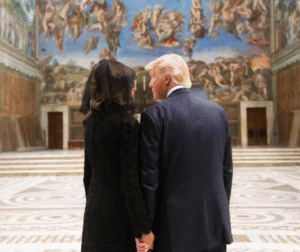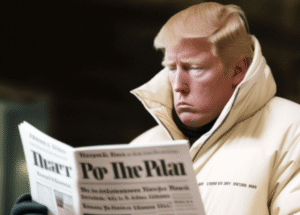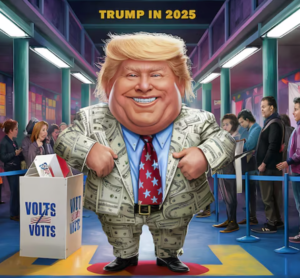$SPY $DXY $GLD
#Trump #Powell #FederalReserve #InterestRates #Economy #USPolitics #MarketVolatility #MonetaryPolicy #RateCuts #Inflation #WallStreet #EconomicGrowth
In an intensified move that caught the attention of both Wall Street and Capitol Hill, President Donald Trump escalated his critiques of Federal Reserve Chairman Jerome Powell, calling for immediate action to lower interest rates. Trump’s vocal demand for rate cuts is a direct challenge to the independence of the Federal Reserve, an institution that traditionally operates free of political interference to ensure a stable economic environment. Trump’s aggressive stance on monetary policy reflects his broader economic strategy to stimulate growth, but it also raises concerns about the potential erosion of the Federal Reserve’s autonomy.
Trump’s criticisms of Powell, whom he labeled a “loser” for not aggressively cutting rates, underscore the president’s frustration with what he perceives as an overly cautious approach to monetary policy. The president believes that lower interest rates would lead to an economic boom, allowing the United States to accelerate growth and outperform its global competitors. However, Powell and other Federal Reserve officials have defended their policy decisions as careful measures to sustain the long-term health of the U.S. economy, weighing the risks of inflation and asset bubbles against the benefits of stimulating economic activity.
This ongoing clash between the presidency and the Federal Reserve has significant implications for the financial markets. Investors are closely monitoring the situation, as Trump’s demands for rate cuts add uncertainty to the market’s outlook. The potential for lower interest rates typically fuels optimism in stock markets but also carries the risk of devaluing the dollar and sparking inflation. This delicate balance has led to increased market volatility, with sectors sensitive to interest rate changes, such as real estate and banking, showing particularly acute reactions to each new development in the Trump-Powell saga.
The broader economic dialogue surrounding these tensions touches on fundamental questions about the appropriate role of monetary policy in managing economic cycles. While Trump advocates for aggressive rate cuts as a means to supercharge the U.S. economy, critics argue that such moves could be imprudent without clear signs of an economic downturn. Moreover, the public spat between the president and the Fed chair invites scrutiny of how political pressures may influence decisions that have long-term consequences for the U.S. and global economies. As this story unfolds, the stakes for the financial markets, economic policy, and the principle of central bank independence could not be higher, making it a critical issue for investors, policymakers, and the public alike.







Comments are closed.